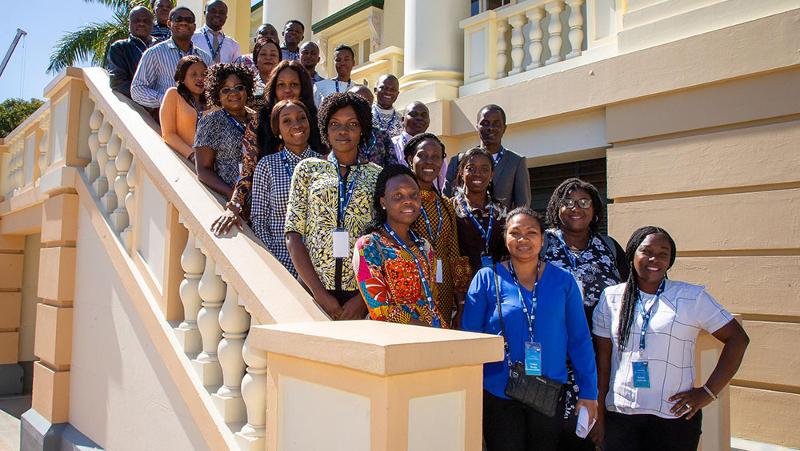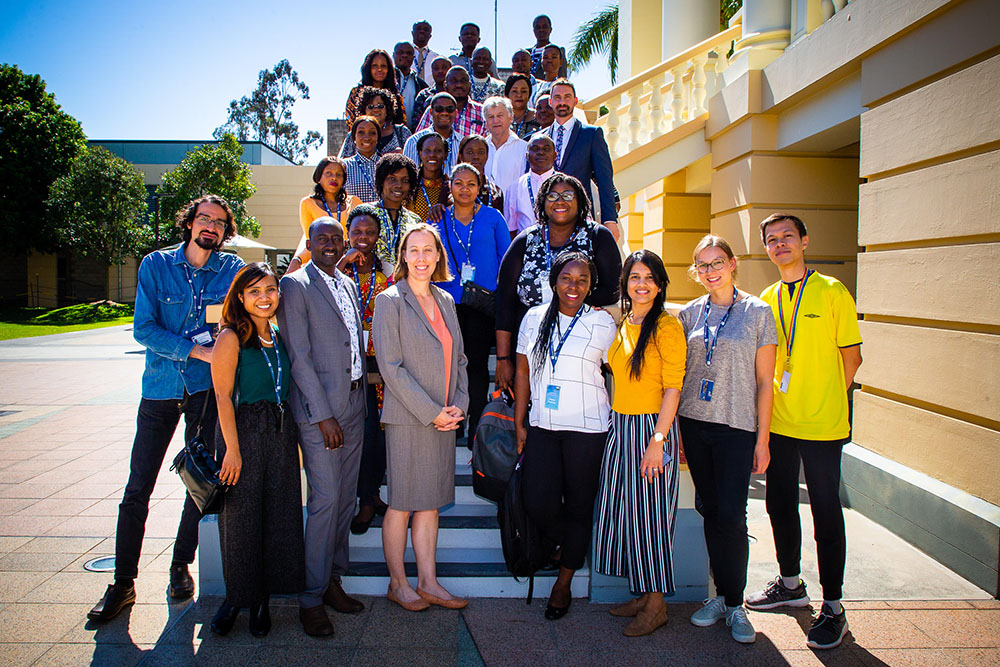
Mental health care professionals, from nine African countries, begin a three-week intensive short course at QUT this week, funded by the Australian Department of Foreign Affairs and Trade.
The Australia Awards Short Course aims to enhance their skills in delivering mental health care in a public health context.
The course will introduce participants from Botswana, Cameroon, Ghana, Madagascar, Nigeria, Tanzania, Uganda, Zambia, and Zimbabwe to good practice in tailoring mental health practice to fit the cultural context and address prevention, early intervention, clinical skills and leadership, underpinned by the principles of gender equality and social inclusion.

Professor Robert Schweitzer, from QUT’s Institute of Health and Biomedical Innovation, said QUT had developed the course to enhance the participants’ knowledge and skills in achieving equitable access to mental health care.
“Stigmatisation of people with mental health problems and their exclusion from mainstream society, together with the absence of treatment, is the norm in many parts of a continent. In some countries, up to 90 per cent of people with mental illness do not receive any mental health care.” Professor Schweitzer said.
“The voice of all people from various cultures needs to be privileged in seeking solutions to local mental health priorities.
“Mental disorders may be seen as a possession by demons or evil spirits in some African communities and management of mental health must consider the context in which issues arise.”
The course is delivered in partnership with Stellenbosch University, South Africa, where participants will undertake the second phase of the course.
On completion of the course, participants will gain access to new knowledge, skills, experiences and networks as a result of their exposure to exemplary programs in both Australia and South Africa.

Professor Crick Lund, from the Alan J Flisher Centre for Public Mental Health, who is teaching into the South African phase, said that mental health had been neglected on Africa’s health and development policy agenda.
“Faced with many challenges, including intractable poverty, infectious diseases, maternal and child mortality, as well as conflict, African political leaders and international development agencies frequently overlook the importance of mental health,” he said.
“This trend is often compounded by three factors: ignorance about the extent of mental health problems, stigma against those living with mental illness and mistaken beliefs that mental illnesses cannot be treated.”
Upon the completion of the short course, participants will return to their home countries with expert knowledge and apply new learnings to identify and develop effective responses which address mental health needs in their local communities and wider contexts.
The Department of Foreign Affairs and Trade funds and manages the Australia Awards. The Australia Awards bring many benefits to eligible African countries, including investment in job creation, wealth generation and development.
QUT Media contacts:
Niki Widdowson, 07 3138 2999 or n.widdowson@qut.edu.au
After hours: Rose Trapnell, 0407 585 901 or media@qut.edu.au.


